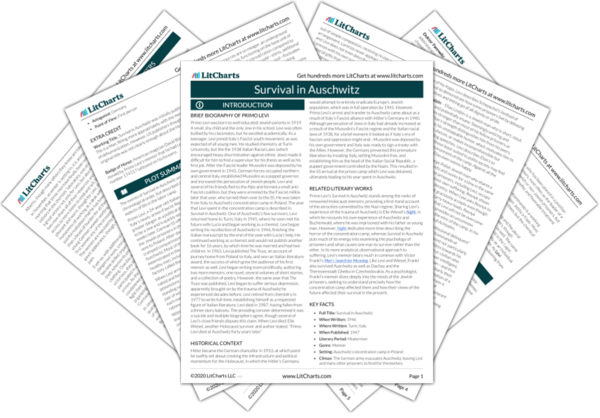As the only possession technically allowed to the prisoners, bread represents a prisoner’s wealth, value, and wellbeing. In the illicit exchange market, bread functions as the base unit of value, measured in single rations. Thus, a prisoner who is a skilled organizer or investor will have a surplus of bread, while a prisoner who is not will only possess his single ration for as long as he can resist the temptation to eat it. Although it is a unit of wealth, bread is also the prisoner’s primary mode of sustenance, the only substantive food the prisoners are ever fed, along with a watery bowl of soup. The rations of bread are never enough to sate one’s hunger, meaning that if a prisoner is not enterprising enough to gather additional bread and thus wealth, they must choose between buying clothing or tools with their bread to better resist the cold, or eating it and briefly forgetting their hunger. Thus, the amount of bread that a prisoner possesses directly reflects his own wealth, and thus his wellbeing, since a surplus of such wealth automatically means a surplus of food as well, keeping one further from starvation than their comrades. When, at the end of the story, the surviving prisoners of the infection ward elect to reward Levi, Arthur, and Charles’s foraging with portions of their own ration of bread, their act of budding humanity is made even more poignant by the fact that they are not only offering something of value, but risking their own wellbeing to show their appreciation.
Bread Quotes in Survival in Auschwitz
A day begins like every day, so long as not to allow us reasonably to conceive its end, so much cold, so much hunger, so much exhaustion separates us from it: so that it is better to concentrate one’s attention on the block of grey bread, which is small but will certainly be ours in an hour, and which for five minutes, until we have devoured it, will form everything that the law of the place allows us to possess.
We now invite the reader to contemplate the possible meaning in the Lager of the words “good” and “evil”, “just” and “unjust”; let everybody judge […] how much of our ordinary moral world could survive on this side of the barbed wire.












